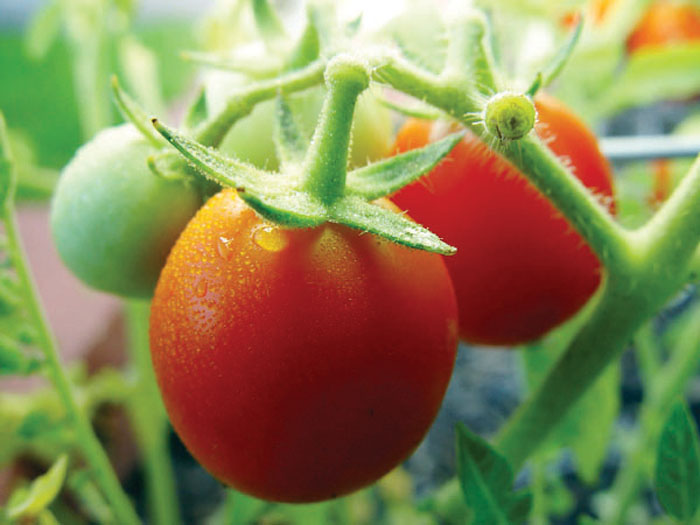Darrell Blackwelder column: Tomatoes 101
Published 12:00 am Sunday, July 4, 2021

- Cherry tomatoes
A couple of people told me they planted tomatoes for the first time this spring. They were curious and wanted to see if they could produce their favorite vegetable. Tomatoes are an extremely popular vegetable, but can be somewhat of a challenge for beginning vegetable gardeners. Below are a few tips from “Tomato 101” class.
There are two basic types of tomato plants — Determinant types which grow to a certain height and stop bearing, while indeterminant types which keep growing all summer long. Determinant types are generally grown by commercial produces. They produce an abundant crop quickly and are done. Heirloom tomatoes are generally indeterminate, producing fruit from the same plant all summer.
Tomato plants like sun and warm weather, but not hot weather. When temperatures constantly peak above 90 degrees, blooms fall and production wanes. Plants need to be placed in full sun for maximum growth.
These vegetables like water. Heavy producers need constant moisture, but do not over water. Over-watering promotes disease and cracked fruit. Avoid poorly drained areas that tend to stand in water. A few inches of mulch will help conserve water and reduce weed growth.
Tomatoes are hungry. Tomato plants must have a steady source of complete nutrients — either liquid or granular for an abundant crop. Low soil pH can be a problem with nutrient uptake. Test your soil for needed soil improvements for proper soil pH range of 6.5 range. Calcium deficiency is a major source of blossom end rot and low pH is a major problem in Piedmont soils.
Diseases and insects are a certainty. Tomato plants have droves of disease and insect problems from viruses, bacteria or fungal diseases to Japanese beetles to stink bugs. Commercial producers are constantly spraying to control insect and disease problems. In the South, you will have insects and disease problems.
Darrell Blackwelder is the retired horticulture agent and director with the North Carolina Cooperative Extension Service in Rowan County. Contact him at deblackw@ncsu.edu .


